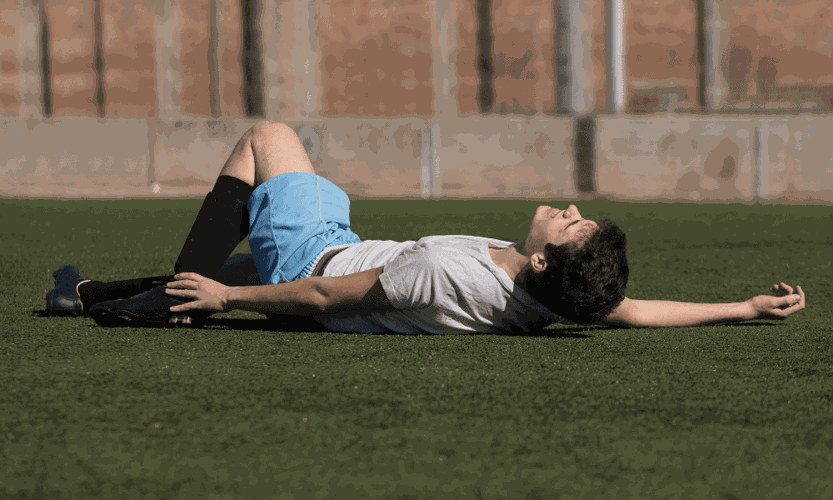
As athletes in West Chester, Pennsylvania, push themselves to new heights, the risk of injury increases, highlighting the need for schools and athletic organizations to prioritize player safety and develop effective protocols to mitigate these risks. Consult with experienced West Chester personal injury lawyers https://wilklawfirm.com if you’re looking for solid legal representation.
Every year, thousands of individuals in Pennsylvania suffer sports-related injuries, resulting in significant financial losses for schools, insurance companies, and individuals. According to the CDC, there were an estimated 44,450 sports-related injuries treated in PA emergency departments between 2010 and 2016, with concussions accounting for 25% of all cases. The economic burden is substantial, with a total cost of $45 million per year in PA alone.
Dealing with sports-related injuries can pose a challenge, mainly when they result in injury claims. Understanding how to manage these claims is crucial to obtaining compensation. This manual offers advice on managing personal injury claims related to sports injuries so that individuals can approach the process with confidence.
Understanding Sports Injuries
Sports injuries can happen in activities like playing for fun or in sports events at school or professionally and can include sprains and fractures along with dislocations and concussions. Each injury has its unique challenges that call for specific treatment methods to heal properly.
Types of Sports Injuries

Injuries like sprains and strains often happen when you push yourself hard or don't use proper form while doing strenuous activities. Fractures and dislocations usually occur when there's a hit or a fall. Concussions, a type of brain injury caused by hits to the head, require special care and affect how personal injury claims are handled.
Documenting the Injury
It's really important to have the right documentation when you're submitting an injury claim. Keeping records is key, as they provide important evidence. Make sure you hold onto copies of all your records, treatment plans, and any bills you've had to pay. Having photos of your injuries and statements from people who saw what happened can also back up your claim. Having documentation makes your case stronger and it helps show just how serious the injury is.
Seeking Medical Attention
Seeking assistance is crucial as it not only accelerates healing but also links the injury directly to the sports activity undertaken. Procrastinating medical intervention can lead to complexities in insurance claims since insurers could dispute the severity of the reported injury. Adhere to the recommended medical treatment plan diligently for speedy recuperation. Moreover, keep a comprehensive log of all treatments administered.
Role of Assumption of Risk
Assumption of risk is a common defense in sports injury claims. Participants often acknowledge inherent risks when engaging in sports. However, this does not absolve others from their duty of care. Negligence, recklessness, or intentional harm can still lead to liability. Understanding this principle helps in countering potential defenses.
Gathering Evidence
Building a personal injury case relies heavily on gathering evidence such as eyewitness accounts and video recordings along with relevant paperwork like medical records and expert opinions to showcase the extent of the injury and the carelessness of those at fault.
Legal Representation
Getting a lawyer who has dealt with sports injury cases can really help your situation a lot! These legal experts know all the ins and outs of personal injury law. Can handle all the stuff for you smoothly. They'll fight for compensation on your behalf and deal with insurance companies to get you what you deserve.
Negotiating with Insurance Companies

Insurance providers often use various negotiation tactics to minimize payouts. To reach a fair agreement, it is crucial to present a well-documented case supported by clear evidence. Having legal representation handle these discussions ensures that the claimant’s needs are prioritized, strengthening their negotiating position.
Filing the Claim
Initiating the claim process requires following a series of steps. Start by informing the party at fault and their insurance company about the incident. Along with this notification, include paperwork such as reports and evidence of responsibility and damages. It's important to respect deadlines as failing to meet them can put the claim at risk.
Preparing for Trial
Sometimes, agreements cannot be reached. The matter goes to trial instead, where thorough preparation is key to a result. It is crucial to collect all evidence and prepare witness statements in collaboration with the lawyer to construct a case. Delivering an argument during the court proceedings boosts the chances of receiving a decision.
Handling personal injury claims involving sports injuries requires meticulous attention to detail and a thorough understanding of the legal process. Proper documentation, immediate medical attention, and strong evidence are critical components. Legal representation can further enhance the chances of securing fair compensation. By following these guidelines, individuals can navigate the complexities of personal injury claims with confidence and achieve a just resolution.




(0) comments
We welcome your comments
Log In
Post a comment as Guest
Keep it Clean. Please avoid obscene, vulgar, lewd, racist or sexually-oriented language.
PLEASE TURN OFF YOUR CAPS LOCK.
Don't Threaten. Threats of harming another person will not be tolerated.
Be Truthful. Don't knowingly lie about anyone or anything.
Be Nice. No racism, sexism or any sort of -ism that is degrading to another person.
Be Proactive. Use the 'Report' link on each comment to let us know of abusive posts.
Share with Us. We'd love to hear eyewitness accounts, the history behind an article.